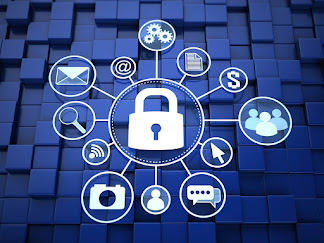WHAT IS ANTIVIRUS SOFTWARE AND WHAT IT DOES?
Antivirus software helps protect your computer from malware and cybercriminal attacks. Antivirus software scans the data, web pages, files, software, and apps that pass through the network to your devices. It scans for known cyber threats and monitors the behavior of all programs to flag suspicious behavior or malicious code. It operates with malware as quickly as possible by blocking it or removing it permanently.
With the constant emergence of new cyber threats, antivirus protection is a must. If no protection software is installed, you may be the target of a virus or other malware that might go undetected, wreaking havoc on your computer or mobile devices, resulting in data loss or financial loss.If you already have antivirus
software, you may think this is enough. But it might not be that simple. With
new and increasingly sophisticated cyber threats and our use of multiple
devices, it's important to stay on top of the latest advancements in device
security.
If your cybersecurity defenses
have the slightest flaw, cybercriminals could potentially try to infiltrate
them. Making sure your antivirus software is up and running is a good start.
However, cybercriminals are constantly improving their methods, so it makes
sense to go further with multiple layers of protection against existing and
emerging cyber threats in the connected world, all in one single solution.
What Is Antivirus Software Used For?
What exactly is antivirus
software for? We are talking about a program or a set of programs whose purpose
is to find and remove computer viruses and other malicious software, also known
as malware. Antivirus
software is a critical part of your overall online and IT security
strategy, as it protects against security breaches and data leaks, as well as
other cyber threats.
To put it simply, a computer
virus is similar to an influenza virus. It is designed to move from one
infected computer or device to another, to duplicate itself, and to spread
malware and code that can damage and infiltrate your operating systems. Viruses
are designed to allow cybercriminals to gain access to the devices of their
victims.
These viruses, spyware, and other
malicious software are called malware and can be stealthily installed on your
computer or device. Malware can do everything from blocking your device to
monitoring or controlling your online activity. This control can allow
cybercriminals to send spam or phishing emails, and steal your personal
information, which can potentially lead to personal data exposure.
Antivirus software provides
protection against these types of cyber threats by performing essential tasks:
·
Identify specific files
for malware detection
·
Scheduling of automatic analyzes
·
Scan a single file or your
entire computer as desired
·
Code and malware removal
·
Checking the security of
your computer and other devices
What Does Antivirus Software Protect You From?
For cybercriminals, the beauty of
malware is its ability to gain access or damage a computer without our
knowledge. It is important to know the different types of malicious code, or
"malware", that antivirus software is designed to protect you from:
·
Spyware: theft of personal
data
·
Ransomware: money
extortion
·
Virus
·
Worm: propagation of
copies between computers
·
Trojan horse: promise of
one thing but delivery of another
·
Adware: serving
advertisements
·
Spam: spreading unwanted
e-mail messages
Does Mac Need Protection from Virus?
Does a Mac have viruses? Although
Macs and other Apple devices are not as frequently targeted as Windows
computers, it is still a good idea to include additional virus protection to be
able to face the future. Right now, if you're careful what you open, don't
click unfamiliar links or attachments, and are careful with your online
activities, you could be safe.
Free Antivirus Software: Does It Work?
Another common question is
whether free antivirus
software is protecting us. But is anything ever really free? Usually a
"free" antivirus generates revenue with advertising and tracking,
sometimes installing "junk ware".
Free downloads can also hide
malware. If you choose this route, only download software from sites you have
complete confidence in. You should always keep your security settings high to
fight against all odds.
Something else to keep in mind
when considering relying on the protection of a free antivirus? Mobile security
and data security support options. These important security features are often lacking
with free software.




Comments
Post a Comment